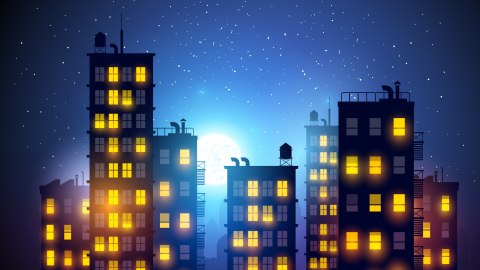Researchers Say We’re Jumpier At Night, But Not Because It’s Dark

The night is dark and full of terrors, or so our brains would have us think. At night, I often leave a trail of lights in my wake, turning them off on my return trip. But while I don’t suffer from a debilitating phobia, there are those out there that do.
BPS writes on a recent study done by Yadan Li and her colleagues to figure out how darkness and nighttime influence some to fear the evening hours.
The researchers write:
“Nighttime fear is a phenomenon in which people feel more afraid of threats at night. Despite the vast amount of psychological research on nighttime fear, previous researchers have not accurately distinguished between ‘night’ and ‘darkness,’ both of which play important roles in nighttime fear.”
The study consisted of 128 young women. Researchers asked them to look at neutral pictures (e.g., nature scenes), scary pictures (e.g., spiders, a person being attacked), and listen to scary sounds (e.g., screams) and neutral sounds (e.g., bird song) while they sat in a windowless cubicle.
However, some women were asked to complete these tasks during different times of day and with different lighting within the cubicle. There were four groups in total: Some completed the tasks during the day in a well-lit room; others during the day where the only light was from the glow of the computer monitor; and some completed the task at night in a well-lit room while others were in a dark room.
The results revealed something quite interesting. Based on the women’s self-evaluations and measurements of their heart rates and perspiration levels, results showed that the nighttime groups were far jumpier — no matter the lighting.
The researchers write in their paper on plans for future study:
“[T]his study is merely a first step in understanding the underlying mechanisms involved in fear-related information processing and has implications for the underlying psychopathology of relevant phobias and anxiety disorders [such as nighttime panic attacks].”
Read more at BPS.
Photo Credit: Shutterstock




